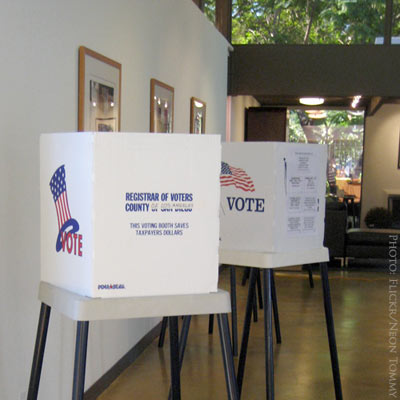Electoral College Myth #5: Eliminating the Electoral College will make it harder to steal elections
Myth number 5 in my series on Electoral College Myths! Please don’t miss the earlier installments here:
Myth #1: Only swing states matter, other states are ignored
Myth #2: The Founders did not trust the people
Myth #3: The Electoral College is undemocratic
Myth #4: Votes cast for a 3rd-party candidate are wasted
Myth: In 2000, a few hundred stolen votes in Florida could have changed the outcome of the presidential election. Such examples show that elections are too easy to steal with the Electoral College in place. Eliminating the system will make it harder to steal elections.
Fact: To the contrary, elections will become easier to steal if the Electoral College is eliminated.
In order to steal an election today, you need a few things going your way: First, at the national level, the election needs to be close enough so that only one or two altered state outcomes will change the final results. Second, at the state level, the margins in these contested states must also be very close. As a matter of history, such elections are fairly rare. The election of 2000 was one such election: Florida was a close race that could have changed the outcome. The election of 1960 was another: Texas and Illinois had narrow margins and could have flipped the election to Nixon. Most elections are won by wider margins.
Assuming the election is this close, however, you must meet one final criterion: You must predict, in advance, the identity of the state(s) in which stolen votes will influence the final results. This is hard to do. In 2000, no one knew in advance that a few hundred stolen votes in Florida could change the election outcome. In fact, if the media had not called the state for Gore too early—before polls closed in the Republican-leaning panhandle—such a narrowly decided result might never have come about. However, imagine that you can make such a prediction. If you can do it, then probably many people from both parties have made the same prediction. Think Ohio in 2004: Many people were worried that the state’s results would determine the identity of the President. As a result, poll watchers and lawyers from all over the country descended upon the state. It was probably not impossible to steal votes in Ohio that year (because it is never impossible), but it was as difficult as possible.

Now consider a world without the Electoral College. Suddenly, the situation is reversed. Any vote stolen in any part of the country can change the outcome of an election. Even votes that are easy to steal suddenly become critical to the national outcome. Imagine how easy it must be to steal votes in the bluest of California or reddest of Texas precincts. These easily stolen votes are now able to change the national outcome. There is no need to predict which swing state could change the outcome of the election. Any vote stolen in any part of the country—no matter how easy it was to steal—makes a difference. This is a dangerous situation and the opposite of what we have now.
An interesting dynamic in our current system is that it is usually easy to steal votes where it does not matter to the national outcome (e.g., safe states dominated by one political party) and hard to steal votes where it might matter (e.g., swing states, which are usually well-watched with poll watchers, etc.).
It is probably naïve to believe that fraud can ever be completely eliminated (although that would certainly be nice). But the Electoral College at least makes it as difficult as possible.
Please don’t miss my new kids’ illustrated book about the Electoral College!
Signed copies available at the bottom of THIS PAGE.
If you have Amazon Prime, shipping will be much cheaper with (unsigned) copies HERE.

